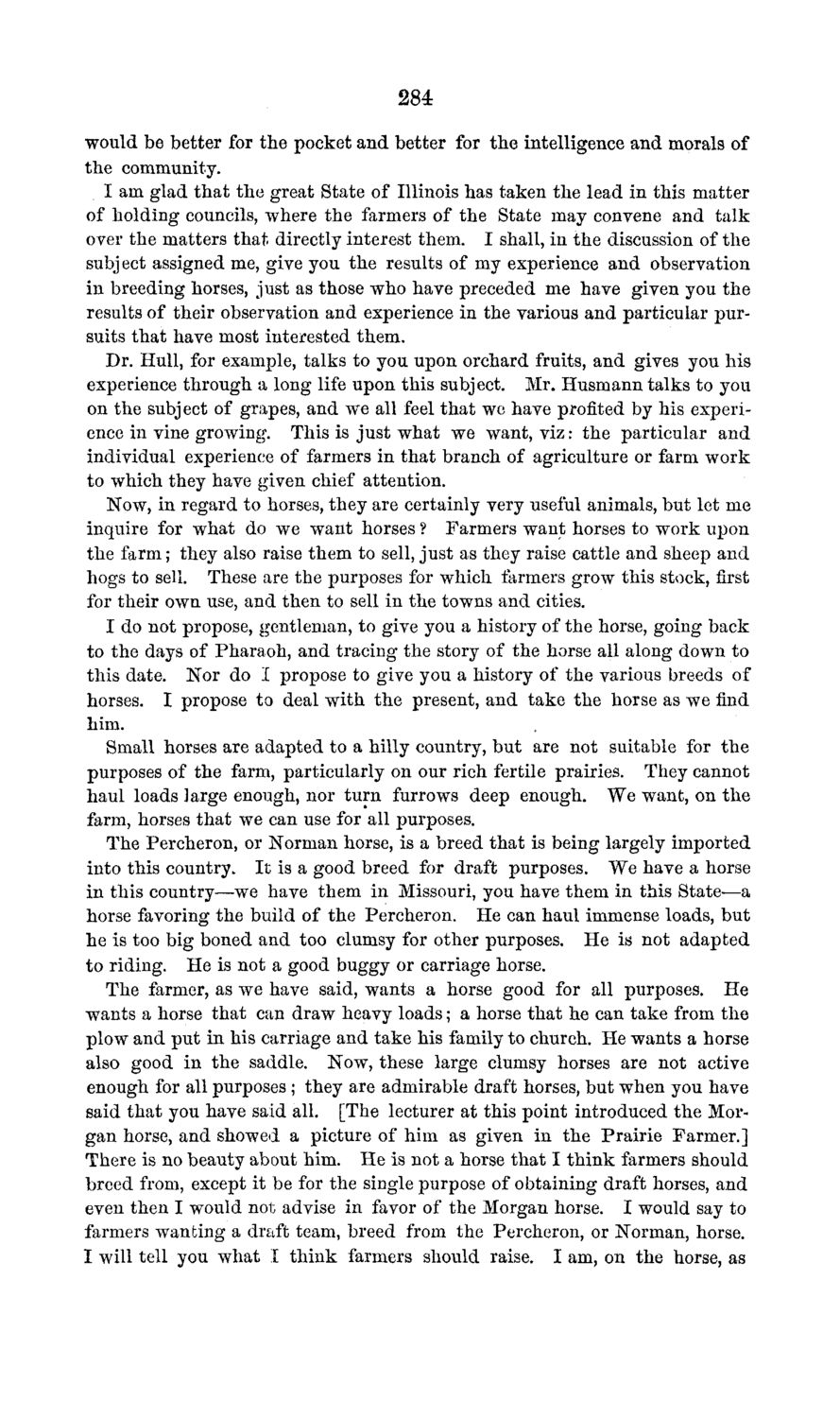| |
| |
Caption: Board of Trustees Minutes - 1869
This is a reduced-resolution page image for fast online browsing.

EXTRACTED TEXT FROM PAGE:
284 would be better for the pocket and better for the intelligence and morals of the community. I am glad that the great State of Illinois has taken the lead in this matter of holding councils, where the farmers of the State may convene and talk over the matters that directly interest them. I shall, in the discussion of the subject assigned me, give you the results of my experience and observation in breeding horses, just as those who have preceded me have given you the results of their observation and experience in the various and particular pursuits that have most interested them. Dr. Hull, for example, talks to you upon orchard fruits, and gives you his experience through a long life upon this subject. Mr. Husmann talks to you on the subject of grapes, and we all feel that we have profited by his experience in vine growing. This is just what we want, viz: the particular and individual experience of farmers in that branch of agriculture or farm work to which they have given chief attention. Now, in regard to horses, they are certainly very useful animals, but let me inquire for what do we want horses ? Farmers want horses to work uj)on the farm; they also raise them to sell, just as they raise cattle and sheep and hogs to sell. These are the purposes for which farmers grow this stock, first for their own use, and then to sell in the towns and cities. I do not propose, gentleman, to give you a history of the horse, going back to the days of Pharaoh, and tracing the story of the horse all along down to this date. Nor do I propose to give you a history of the various breeds of horses. I propose to deal with the present, and take the horse as we find him. Small horses are adapted to a hilly country, but are not suitable for the purposes of the farm, particularly on our rich fertile prairies. They cannot haul loads large enough, nor turn furrows deep enough. We want, on the farm, horses that we can use for all purposes. The Percheron, or Norman horse, is a breed that is being largely imported into this country. It is a good breed for draft purposes. We have a horse in this country—we have them in Missouri, you have them in this State—a horse favoring the build of the Percheron. He can haul immense loads, but he is too big boned and too clumsy for other purposes. He is not adapted to riding. He is not a good buggy or carriage horse. The farmer, as we have said, wants a horse good for all purposes. He wants a horse that can draw heavy loads; a horse that he can take from the plow and put in his carriage and take his family to church. He wants a horse also good in the saddle. Now, these large clumsy horses are not active enough for all purposes ; they are admirable draft horses, but when you have said that you have said all. [The lecturer at this point introduced the Morgan horse, and showed a picture of him as given in the Prairie Farmer.] There is no beauty about him. He is not a horse that I think farmers should breed from, except it be for the single purpose of obtaining draft horses, and even then I would not advise in favor of the Morgan horse. I would say to farmers wanting a draft team, breed from the Percheron, or Norman, horse. I will tell you what I think farmers should raise. I am, on the horse, as
| |